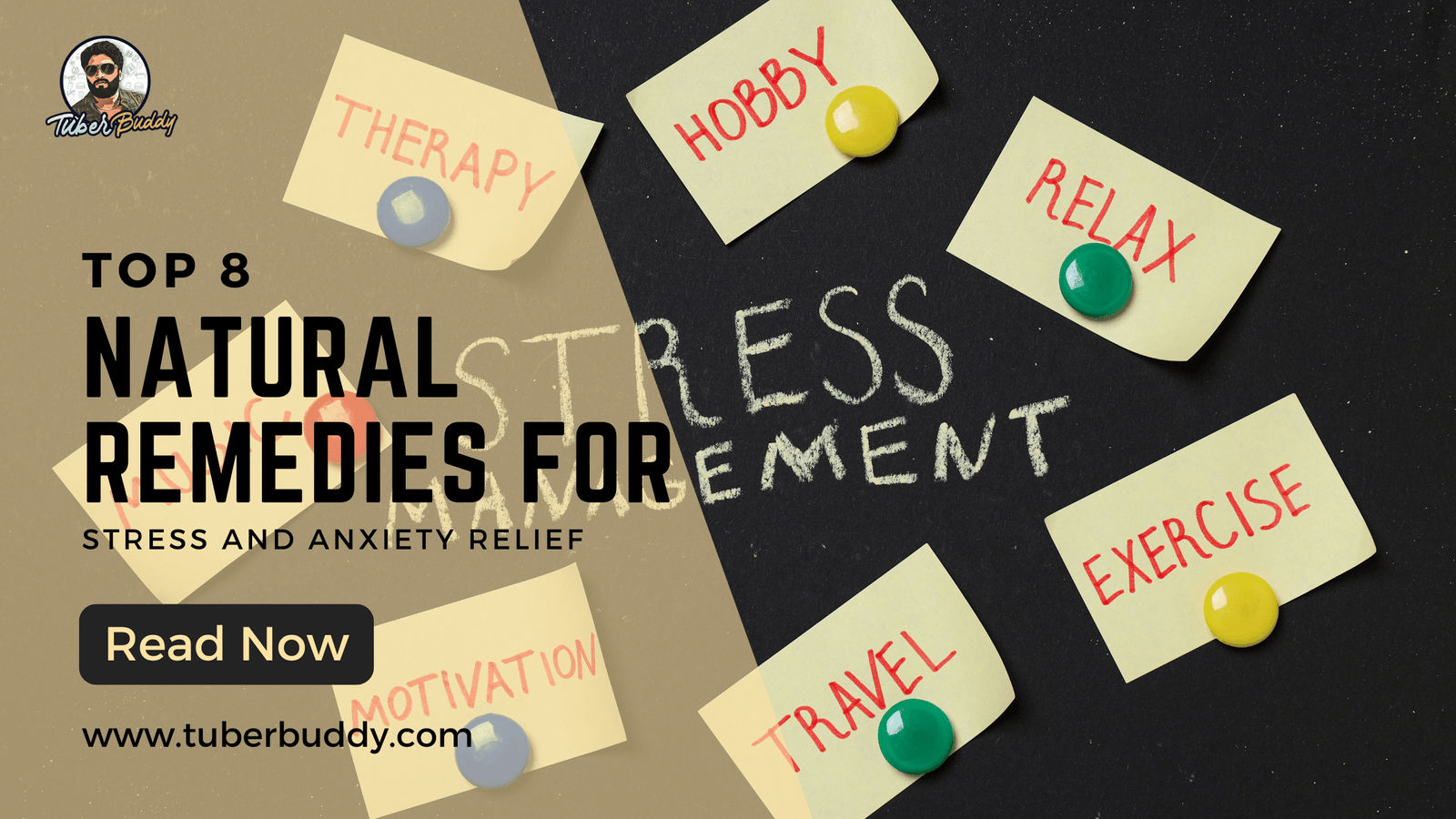
Top Stress Relief Methods: Simple Ways to Relax and Recharge
In today’s fast-paced world, stress and anxiety have become common challenges that many people face daily. While it’s important to seek professional help when needed, there are also several natural remedies that can help alleviate stress and promote a sense of calm. Exploring some of the Top Stress Relief Methods can make a big difference in improving mental well-being. Here’s a look at some effective, natural ways to manage stress and anxiety.
1. Herbal Teas
Herbal teas have been used for centuries to calm the mind and body.
Some of the most effective teas for stress relief include:
-
Chamomile: Known for its soothing properties, chamomile tea can help reduce anxiety and promote better sleep.
Lavender: Lavender tea is often used to ease tension and improve mood.
Peppermint: This refreshing tea helps to relax muscles and reduce stress-related headaches.
2. Aromatherapy
Aromatherapy involves using essential oils to improve well-being. It is one of the Top Stress Relief Methods because certain essential oils can have a calming effect on the mind and body. Popular choices include lavender, eucalyptus, and sandalwood, which are known to promote relaxation, reduce anxiety, and create a peaceful atmosphere.

Lavender: Lavender oil is widely known for its stress-relieving properties.
Bergamot: This citrusy essential oil can help uplift your mood and reduce anxiety.
Frankincense: Often used in meditation, frankincense can help you feel grounded and centered.
Using aromatherapy with these oils is considered one of the Top Stress Relief Methods. You can use them in a diffuser, add a few drops to your bath, or apply them topically (diluted with a carrier oil) to experience their calming effects.
3. Exercise
Physical activity is a powerful tool for managing stress and anxiety. Regular exercise releases endorphins, which are natural mood lifters. Some of the best forms of exercise for stress relief include:
Yoga: Combines physical postures, breathing exercises, and meditation to reduce stress.
Walking: A simple walk in nature can do wonders for your mental health.
Dancing: Moving to music can be a fun way to release tension and improve your mood.
4. Mindfulness and Meditation
Mindfulness and meditation are practices that focus on being present in the moment, helping to reduce anxiety and improve emotional well-being. In another blog, we wrote about yoga that you can follow

Mindfulness Meditation: Involves paying attention to your thoughts, feelings, and sensations without judgment.
Deep Breathing Exercises: Simple breathing techniques, like deep belly breathing, can quickly calm your nervous system.
Guided Meditation: There are numerous apps and online resources that offer guided meditations specifically designed for stress and anxiety relief.
5. Adequate Sleep
Quality sleep is essential for managing stress and anxiety. Lack of sleep can exacerbate these conditions, making it important to establish a healthy sleep routine. Some tips for better sleep include:
Set a Regular Sleep Schedule: Go to bed and wake up at the same time every day.
Create a Relaxing Bedtime Routine: Engage in calming activities before bed, like reading or taking a warm bath.
Limit Screen Time: Reduce exposure to screens at least an hour before bed to improve sleep quality.
6. Healthy Diet
Your diet plays a significant role in how you feel. Eating a balanced diet rich in whole foods can help stabilize your mood and energy levels. Some stress-relieving foods include:
Leafy Greens: Rich in magnesium, which helps regulate stress hormones.
Nuts and Seeds: Packed with healthy fats and vitamins that support brain health.
Berries: High in antioxidants that help protect your body from stress.
7. Social Support
Connecting with others can have a profound impact on your stress levels.
Whether it’s talking and travel with your friend, joining a support group, or spending time with loved ones, social interaction can provide emotional support and reduce feelings of isolation.
Conclusion: While stress and anxiety are inevitable parts of life, incorporating these natural remedies into your daily routine can help you manage these feelings more effectively. Remember that everyone is different, so it may take some time to find the remedies that work best for you. By taking small steps towards a healthier lifestyle, you can significantly reduce your stress levels and improve your overall well-being.
For more stories that connect past and present, Follow https://tuberbuddy.com/
